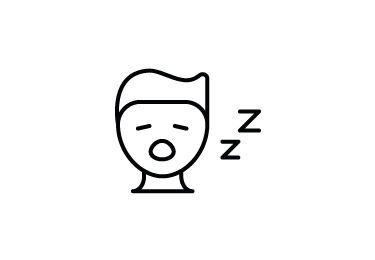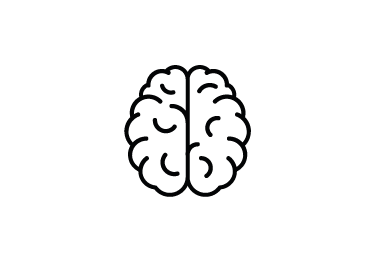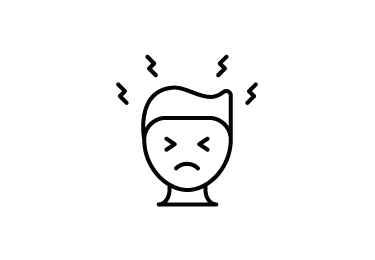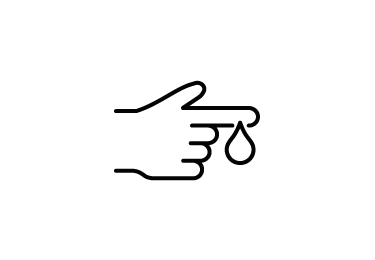When sleeping well becomes a distant dream, it’s time to wake up: you may be among the more than 70% of Brazilians who suffer from sleep problems. Sadly, this suffering does not only result in bad mood, tiredness or unwelcome dark circles under the eyes. Unfortunately, yawning is not as simple as it seems…

Sleep Deprivation and its health consequences
The term sleep deprivation has a simple definition: it consists of sleeping less than the body needs. What isn’t so simple are the consequences for the health of those who lose precious hours of rest.

Tiredness and Fatigue
Drowsiness, tiredness and lack of energy are the first symptoms of not getting a good night’s sleep, because it is during rest, especially in its deepest stages, that the body is able to recover its energy.

Memory and Attention Failure
It is while sleeping that we consolidate memories and renew cognitive performance. For this reason, being sleep deprived can lead to difficulties in remembering things, thinking things through, concentrating or paying attention, affecting the ability to make decisions and even professional performance.

Drop in Immunity
The lack of sleep also impairs the production of the cells that defend your body, weakening your immune system and making it less effective at fighting infections.

Sadness and Irritability
Emotional health is affected as well, which can lead to irritation, sadness, impatience… When there is chronic sleep deprivation and sadness becomes more recurrent, the person can begin to suffer from anxiety and depression.

Hypertension
That’s right! Sleeping fewer hours than your body requires can cause high blood pressure, because it is during sleep that the cardiovascular system is able to rest, lowering blood pressure and heart rate. This also increases the chances of heart attacks and strokes, for example.

Hormonal Changes
What regulates the production of hormones in our body is a proper balance between sleep and the state of wakefulness. Thus, hormones such as melatonin, adrenaline, TSH and growth hormone are closely linked to proper sleep which, when absent, can cause growth delays, difficulty in gaining or losing muscle mass, thyroid alterations, fatigue…

Sexual Impairment
Those who sleep too little can experience a decrease in libido and a worsening in the quality of sexual activity, as there is an alteration in the release of the hormones that control sexual desire (testosterone and estrogen). In addition, due to the high release of cortisol, which is responsible for relieving stress, the person becomes alert and is unable to relax.

Diabetes
According to Japanese study from Toho, Japan, losing as little as 6 hours of sleep is enough to affect the liver’s ability to produce glucose and process insulin, increasing the risk of metabolic diseases such as type 2 diabetes and hepatic steatosis (fatty liver).
Why do we need to sleep “so much”?
Of course, you’ve heard the classic phrases “God forbid I spend 1/3 of my life sleeping”, “Leave it to when I die” and so on. But there is a biological reason for this “so much” to be fulfilled. When we sleep, apart from the obvious recharging of energy and resting the body, we keep up our cognitive functions and even dispose of some toxins and memories that our brain no longer needs.
But what is “so much” about?
The classic 8 hours of sleep per night that we’ve always heard about is not an unbreakable rule. This is because the amount of sleep we need at night varies throughout our lives, and can depend, for example, on physiological factors and – why not? – our age. Who hasn’t noticed that the elderly sleep a lot less than the average adult and take short naps throughout the day?
The fact is that, in general, the optimal amount of sleep for an adult is between 7 and 9 hours a night, which can, of course, vary a little. But if you’re not a senior citizen and you sleep a lot less than that, especially if you feel like you haven’t rested when you wake up, you could be suffering from one of the sleep disorders.
Learning about sleep disorders
If, every night, you spend time counting tired sheep jumping up and down and no sleep comes, perhaps it’s time to open your eyes to something more critical, such as the possibility that you’re suffering from one of the sleep disorders. Among the most common are:
-
Insomnia
Difficulty initiating sleep and maintaining it continuously throughout the night, or waking up before the alarm clock (who hasn't been there before?).
-
Sleep Apnea
Breathing during sleep becomes excessively shallow or is interrupted for a few seconds or minutes.
-
Sleepwalking
During the sleep cycle, the patient gets up, walks around and carries out various activities, such as eating and talking, without waking up or being conscious.
-
Bruxism
The unconscious act of clenching or grinding the teeth constantly and excessively, causing pressure on them and tension in the muscles responsible for chewing.
-
Narcolepsy
A chronic neurological condition in which the person ends up feeling excessively sleepy and can fall asleep standing up, on public transport, at work, etc. even after a good night's sleep.
-
Sleep Paralysis
The person, although conscious, is unable to speak or move. The episodes usually happen when the person is transitioning between sleep and wakefulness, in other words, waking up or falling asleep.
Nice to meet you:
Sleep Hygiene
Increasingly disseminated and discussed, sleep hygiene consists of a set of practices capable of preparing and training your body so that bedtime is always a pleasant, pleasurable and relaxing time, allowing for a better quality of sleep.
In fact, a spoiler involving one of the biggest enemies of your sleep hygiene: research around the world already connects excessive cell phone use to poor sleep quality and, in more extreme cases, can be a trigger for sleep disorders such as insomnia. That’s why this “nocturnal code of conduct” deserves due attention.
But before we get into the actual step-by-step of this hygiene, it’s important to point out that it’s not because you don’t suffer from the disorders detailed above that poor sleep hygiene won’t prevent you from developing them.
Sleep
Hygiene
Sleep
Hygiene
Depending on each person’s reality, such as individual work needs and routine, it won’t always be possible to follow all the guidelines below. But it’s important that you at least know about them.
Depending on each person’s reality, such as individual work needs and routine, it won’t always be possible to follow all the guidelines below. But it’s important that you at least know about them.
Here are the main ones:
For you

Have well-defined bedtimes and wake-up times, which should be adhered to even on holidays and weekends.

Don’t have stimulating drinks or foods (caffeine, chocolate, alcohol, black tea, green tea and soft drinks) at least 6 hours before bedtime.

Don’t eat too much food at dinner (which shouldn’t be too late either), and avoid sugar and spicy foods.

Exercise regularly, ensuring that you have a window of at least 4 hours before going to bed.

When you’re in bed, stay away from screens such as cell phones, television, tablets, laptops, etc. at least 1 hour before bedtime.

Avoid taking naps during the day. If this isn’t possible, make sure they don’t last longer than 45 minutes or occur too close to the evening.
For the ambiance

Keep the room dark, with indirect or dim light.

Control the temperature, giving preference to the milder ones.

Wear comfortable clothes, suitable for the weather.

Keep the environment quiet and peaceful.
DOWNLOADS
If you or someone you know needs and would make good use of this content, spread the word and share it with them by downloading the campaign’s digital pack. But remember: No information here is a substitute for expert medical advice. So always keep your medical exams and appointments up to date and…
Sweet dreams!
March 15th
World Sleep Day




